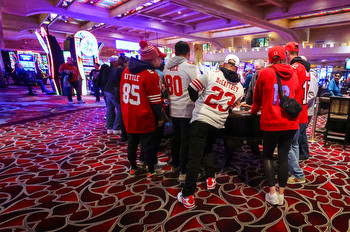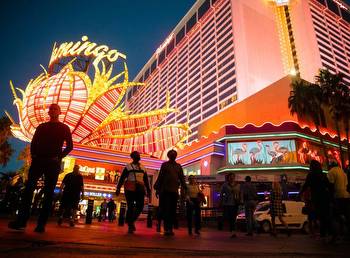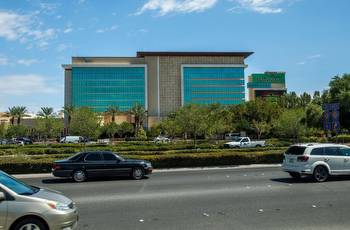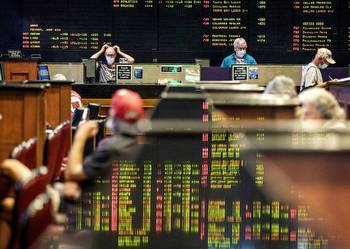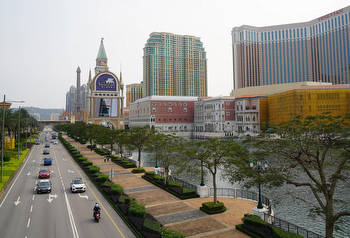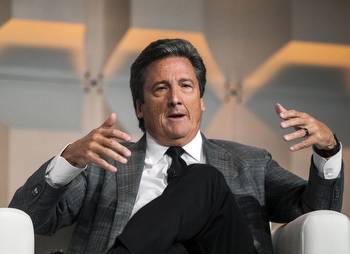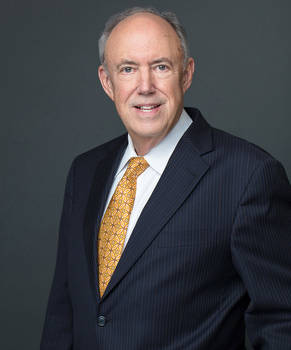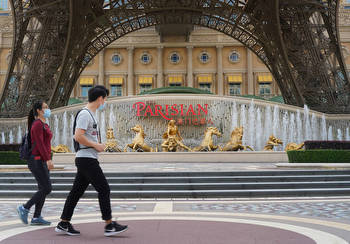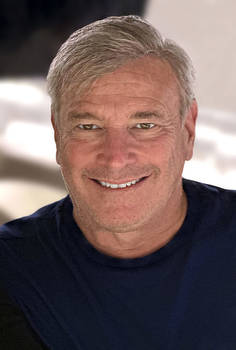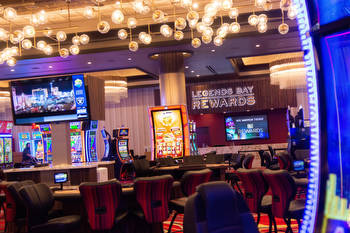Indy Gaming: Vegas set to prosper in ‘fun economy,’ UNLV experts say

Good morning, and welcome to the Indy Gaming newsletter, a weekly look at gaming matters nationally and internationally and how the events tie back to Nevada.
If a colleague or associate emailed this newsletter to you, please to sign up and receive your own copy of Indy Gaming in your inbox. - Howard Stutz
The term “fun economy” might sound cheesy, but experts use it to describe the combined money spent on tourism, sports and entertainment.
However, experts estimate that when taking into account the global sector and the broad spectrum of activities, the fun economy is worth $13.7 trillion — a lot of cheddar.
Bo Bernhard, UNLV’s vice president of economic development who oversees the university’s Black Fire Research Institute — an innovation research lab dedicated to developing products for the gaming and hospitality industries — says Las Vegas is in the process of becoming the center of the “fun economy.”
A decade ago, he authored a paper on how Las Vegas gaming operators could export their economic capital and become “the global command center for the international gaming industry.”
Since that paper was written, sports betting, once a Nevada-only business, is now legal in 38 states, Washington, D.C., and Canada, boosted in part by Caesars Entertainment and MGM Resorts International. U.S. gaming equipment providers supply casinos throughout the world. Meanwhile, the United Arab Emirates is looking at implementing a Nevada-style gaming regulatory system led by former MGM Resorts CEO Jim Murren.
Bernhard said the same effort can now be put toward the “fun economy” as Las Vegas is quickly emerging as an international destination for sports. Super Bowl LVIII will be held at Allegiant Stadium on Feb. 11, the Formula One Las Vegas Grand Prix took over the Strip in November and the NCAA Final Four — the culmination of the men’s college basketball tournament — will be hosted at Allegiant Stadium in 2028.
“Vegas is the global intellectual capital for what is produced in tourism, sports and entertainment,” said Bernhard, whose enthusiasm makes him the ultimate hype guy when it comes to all things Las Vegas and UNLV. He also noted the precedent of Strip resorts hosting championship boxing matches going back decades.
Longtime gaming executive Quinton Singleton, who was Bernhard’s co-author of the “Introducing the Fun Economy” paper, is equally exuberant on Las Vegas benefiting from the convergence of sports, entertainment and tourism.
“We know how to change the landscape, not just in a single city and not just in a single country,” Singleton said of the Las Vegas gaming, tourism and sports industry. “We’ve changed the landscape with the fun economy on a global scale, over and over again.”
In 2022, Bernhard and Singleton wrote that the “fun economy” included $8.4 trillion from tourism, $2.6 trillion from sports and $2.7 trillion from entertainment, according to numbers from the International Monetary Fund. Gaming, both in casinos and online, factored into the entertainment sector.
The authors said the combined sectors equated to almost 14 percent of the global gross domestic product.
“Remarkably, just under 14 percent of every dollar, yen, euro, peso, and all the money spent on earth is spent in the ‘Fun Economy,’” Bernhard and Singleton wrote.
Singleton launched Zero Labs in 2022, an accelerator program focused on helping startups and early stage companies that target gaming, hospitality, entertainment and sports. The business operates out of UNLV’s Black Fire, located in the 122-acre UNLV Harry Reid Research and Technology Park in southwest Las Vegas.
Zero Labs is holding a launch event at Black Fire this weekend for nearly two dozen startups. Singleton said the inaugural accelerator program will take the companies through intensive sessions with a targeted outcome of getting them ready to pitch to venture capitalists.
“It's not just about launching small businesses. It's also about taking existing small businesses and growing them,” Singleton said.
Bernhard suggested the timing is right to bring new businesses into each of the “fun economy” sectors, which are growing ahead of traditional economic sectors. According to Zero Labs’ research, at $13.7 billion, the “fun economy” as a whole is larger than global construction ($8.2 trillion), global pharmaceutical ($1.48 trillion) and global apparel retail ($1.8 trillion).
“It's fun. You buy fun. You buy travel, you buy sports, you buy entertainment, and that includes gambling,” Bernhard said. “For leaders of the fun economy, the macro news is rosy. The future of the global economy is bending in your direction.”
Strip results expected to sink Caesars fourth-quarter earnings
Caesars Entertainment said it expects to show a net loss between $4 million and $157 million in the last three months of 2023 when the Las Vegas-based casino operator reports its year-end results Feb. 20.
But the investment community didn’t express much concern by the company’s preliminary earnings statement to the Securities and Exchange Commission on Jan. 18, which coincided with an announcement that Caesars was raising cash to pay off almost $3.4 billion of its $12.4 billion in total debt.
Much of the anticipated loss was because of the company’s Strip properties, which are expected to report total fourth-quarter revenue of between $1.08 billion and $1.09 billion, down from $1.1 billion in the prior three-month period.
“We think the softer fourth-quarter results should be well understood,” Truist Securities gaming analyst Barry Jonas told investors in a research note last week.
Although Caesars said its Las Vegas hotel occupancy rate was expected to be 97.9 percent compared to 95.5 percent in the 2022 fourth quarter, the company said ongoing renovations to hotel towers at Paris Las Vegas and Caesars Palace took 65,000 potential room nights off the market.
The bigger concern, according to analysts, was the company’s Strip table game wagering decreased 1 percent from the prior quarter. The reporting period included the three days of the Formula One Las Vegas Grand Prix in November. The hold percentage on wagers was also down about 2 percent, which lowered casino revenue from the prior year.
“We do not believe the pre-announcement or the weakness … will come as a surprise to investors,” Deutsche Bank gaming analyst Carlo Santarelli wrote in a research note.
Oaktree takes control of Mesquite Gaming, installs new CEO
Private investment firm Oaktree Capital Management has taken an interest in Nevada gaming.
Interblock Gaming, last year Oaktree became the majority owner of Illinois-based slot machine route operator J&J Gaming. The deal helped fund J&J’s $365 million acquisition of Golden Entertainment’s route operations in Nevada and Montana.
Oaktree also bought Mesquite Gaming last year for an undisclosed price. Last week, gaming industry veteran Justin Moore was named CEO and will oversee the operations of the company’s two Mesquite properties: CasaBlanca Resort & Casino and Virgin River Hotel & Casino.
A native of St. George, Utah, with 25 years in the casino and hospitality business, Moore started his career in Mesquite as a food server at the Mesquite Star Casino. His most recent management job was as general manager of Rivers Casino in Philadelphia.
Moore worked in various executive roles with Station Casinos, eventually becoming general manager at Green Valley Ranch Resort. He moved to New York in 2017 to become general manager of Rivers Casino & Resort in Schenectady. He initially joined Mesquite Gaming as a consultant last year.
In November, Oaktree Managing Partner Matthew Wilson told the Nevada Gaming Commission the investment in Mesquite Gaming was viewed as “going into something where the operations have been well run for many years. We have the opportunity to take the ball to the next level.”
Bellagio Conservatory highlights ‘The Year of the Dragon’
The Bellagio unveiled its Chinese New Year celebration in the Strip resort’s Conservatory with an elaborate display of vibrant floral arrangements and colorful décor to celebrate the “Infinite Prosperity: The Year of the Dragon.”
The display, which is free of charge to the public, will run through March 2.
The Bellagio horticulture team used more than 45,643 display elements to create the display, including 23,000 fresh and preserved flowers and 12,000 plants.
***
Two Las Vegas Sands board members resign
Two Las Vegas Sands board members, including a former dean of the Duke University School of Law, resigned from the casino company’s corporate oversight panel last week.
In a filing with the Securities and Exchange Commission, the company said the departures were “not the result of any disagreement with the company on any matter relating to the company’s operations, policies or practices.” Both resignations took effect Monday.
David Levi is a former federal judge who now serves as a law professor and is director of the Bolch Judicial Institute at the Duke University School of Law. Levi, who was the law school dean from 2007 to 2018, had been on the Sands board since 2015.
Nora Jordan, an attorney at Davis Polk & Wardwell, an international law firm, also resigned. She had been a member of the Sands board since 2021.
Las Vegas Sands CEO Rob Goldstein is the company’s chairman and President Patrick Dumont, also serves on the board. Miriam Adelson, the company’s largest shareholder with 52 percent control, is not on board, although Dumont is her son-in-law.
***
IGT extends its lottery contract with the United Kingdom
Gaming equipment provider International Game Technology, which is trying to sell its slot machine division to focus on its worldwide lottery business, announced an extension of its contract to supply equipment to the United Kingdom’s national lottery last week. Terms of the deal and length of the contract were not disclosed.
IGT, which is headquartered in London but maintains a sales and marketing headquarters in Las Vegas and a manufacturing center in Reno, provides lottery technology to 25 U.S. states and eight of the world’s top lotteries. The company announced Monday a three-year extension to its contract with Virginia that pushes the state’s expiration date to 2033.
Reports surfaced in September that Apollo Global Management was considering a $4 billion to $5 billion purchase of IGT’s global gaming and digital gaming divisions.








